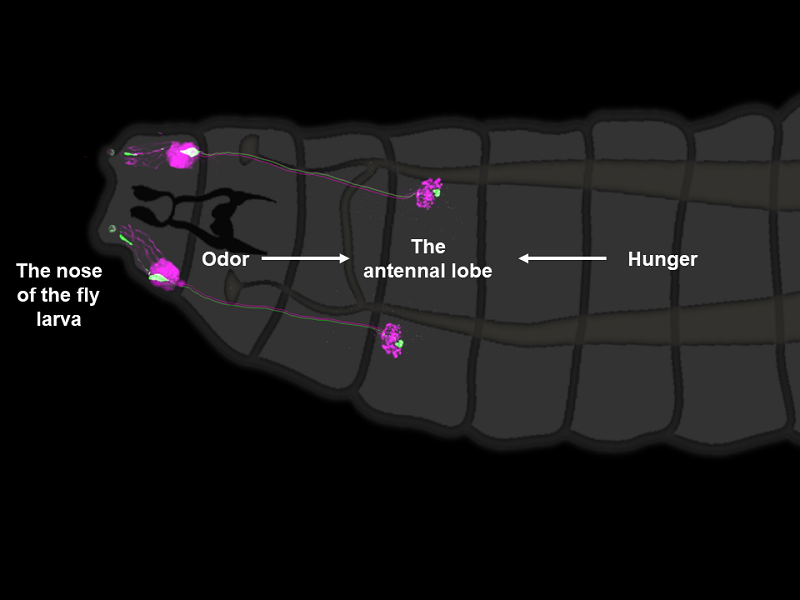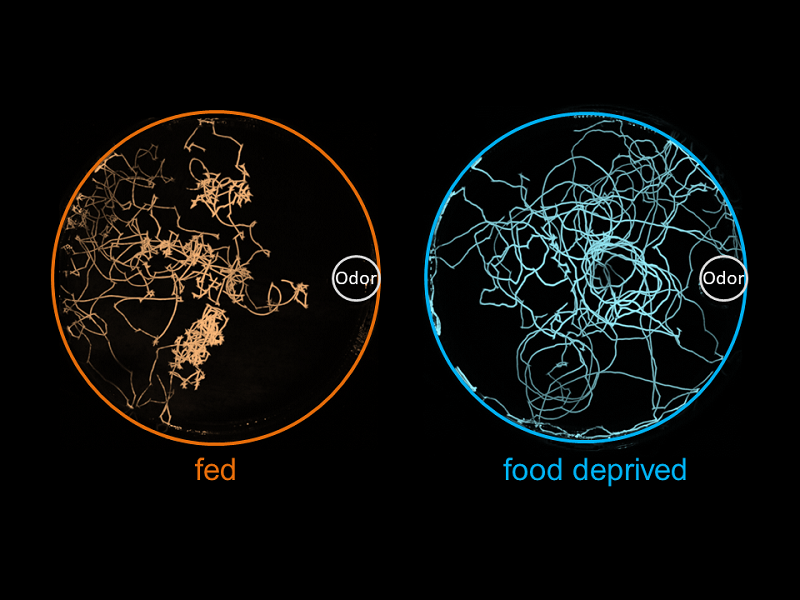We are all familiar with this situation: We just want to buy some healthy food for dinner but end up with a shopping cart full of junk food such as pizza or chocolate—all because we went shopping when hungry. Why is it so hard for us to stick to our shopping list when we’re hungry? How does the change in our internal state affect our decision making?
We discovered that Drosophila larvae also change their behavior when hungry and set out to unravel the neural mechanism in the brain of the fruit fly larva. Thanks to a rich genetic toolkit and full knowledge of neural circuit anatomy we could identify the neuronal switch underlying a state-dependent change in olfactory preference. Fed fly larvae avoid certain non-food odors, however when food deprived for a few hours, they even approach these odors. After food deprivation, increased serotonin release from a higher brain feedback neuron modulates neural activity of different cell types in the antennal lobe, the first olfactory processing center in the fly. This modulation leads to a switch in activity of two different antennal lobe output pathways and thus also induces a change in behavior. These long-range serotonergic feedback projections also exist in the olfactory bulb, the first olfactory processing center in mammals. Therefore, by understanding state-dependent neuronal modulations in the fly brain we might also get a hint as to how hunger or other internal states influence our brain circuits.

Olfactory sensory neurons of the fly larva, projecting from the nose to the antennal lobe, where odor and hunger information gets integrated

Olfactory sensory neurons of the fly larva, projecting from the nose to the antennal lobe, where odor and hunger information gets integrated
Katrin Vogt is currently an independent research associate in the department of neurobiology, University of Konstanz. She was formerly a postdoctoral fellow in the lab of Aravi Samuel.
Learn more in the original research article:
Vogt, K., Zimmerman, D. M., Schlichting, M., Hernandez-Nunez, L., Qin, S., Malacon, K., Rosbash, M., Pehlevan, C., Cardona, A., & Samuel, A. (2021). Internal state configures olfactory behavior and early sensory processing in Drosophila larvae. Science advances, 7(1), eabd6900. https://doi.org/10.1126/sciadv.abd6900
News Types: Community Stories
